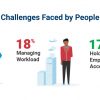Most organisations believe that they must stay competitive and must learn and improve every day to keep up with or stay ahead of the pack.
But even the companies who are known for their dedication to Learning & People Development find it difficult to practice what they preach in the real world.
Having worked with several organisations who have various industry awards for their standards and staff development, they can then struggle to remain a “learning organisation”. My last 23 years working in leisure, moving through the ranks and working with over 130+ organisations have led me to the following conclusion “Bias’s cause people to focus too much on success, take action too quickly, try too hard to fit in, and depend too much on experts (I know this will cost me business, but it’s the truth)
The “Bias Effect” are decisions that people tend to favour.
The Bias Towards Success
The Bias Towards Action
Bias Toward Fitting In
Bias Toward Experts
Please let me explain in more detail each “Bias.”

A BIAS TOWARDS SUCCESS
Most organisations know that they must try new things, and along the way, they will make mistakes – these mistakes are vital in the learning process for the organisation – but organisations actions show a preoccupation with a success that sometimes impedes the desire to try new things. So there are four issues they will then face:
ISSUE 1: The Fear Of Failure – Failure causes lots of problems in the business, from anger, hurt shame, stress and even depression. So managers try to avoid these emotions by not trying something new. We must be one of the only industries who discount when demand is high as the fear of not making an offer just in case we don’t hit a target. This stops most in the industry from benefiting from the higher yield. Sometimes senior managers unintentionally create institutionalised fear of failure – So unless managers tolerate failure and insist it is discussed managers can’t develop new capabilities and reap the rewards.
ISSUE 2: A Fixed Mindset– Psychologist Carol Dweck identified two different mindsets – Fixed & Growth. When people have a fixed mindset they tend to believe that intelligence and talents are primarily a matter of genetics and you either have them, or you don’t, so they appear to be smart at all costs and failure then is something to be avoided, as failure would them render them incompetent. The fixed mindset is about performing well now so often limits the need to learn.
ISSUE 3: Over-reliance on history – untrained managers often hire or promote based upon performance and not potential. So sometimes I see a case of waiting in dead men’s shoes, and phrases like “they don’t have the experience” when in reality they haven’t looked at the skill sets they could bring to the role or how the behaviours may suit the position needing to be filled. Other issues with this could be that they have tried something before and therefore “IT DOESN’T WORK HERE” new results will not come from the same old behaviour!
Issue 4: Attribution Bias (I know this is another Bias, but work with me on this) – when something goes right in the organisation this usually is due to hard work, skill and pure amazingness. When something goes wrong in an organisation, it was either lousy fortune of somebody else’s fault. This phenomenon is known as “attribution bias” (“why leaders don’t learn from success” April 2011 article in Harvard Business Review), and this majorly hinders learning ability. If people don’t realise the failure was down to their own doing, then they cannot learn from their mistakes. Learning to create a silver lining from errors is beneficial to the manager and the organisation.
How to fix –
#Failure needs to become part of the process; if there is no failure there is no cure – could you imagine if all scientists never failed and if they did once, they never get back up and try again by learning from their mistakes, there would be virtually no medication available if this was the case.
#Embrace a growth mindset – train teams to improve their thinking, and therefore your actions. If you have a lot of people in the organisation who have been there for years and are still in the same sort of job (sometimes new job due to a reshuffle) you may not have a growth mindset just yet, but work on this and unlock peoples potential.
It’s all about potential – try new things, don’t miss out the personal stuff like 1-2-1’s, this is where we unearth the potential and light the fires in people.
#Use DATA in your organisation to determine if things worked or not, data such as how many people enquired, how many had a tour, how many got a needs analysis and how many joined and then gave a referral, could be a better way to judge a marketing campaign, rather than just membership numbers. If you do a summer campaign don’t only rule on number enrolled, maybe look at – How many enquired, how many got given a program, how many were asked if they were ok, how many converted into full members.

BIAS TOWARDS ACTION
When there is an issue in work, is it all hands to the deck, work harder, more extended hours and probably unintentionally put lots more stress on yourself. You are probably more comfortable doing something rather than doing nothing at all, even if what you are doing may be counterproductive.
Take a goalie in a penalty shoot-out (study by Michael Bar-Eli in the book soccernomics) if they stay in the middle of the goal they are 33.33% likely to save the ball, but only 6.3% of goalies remain in the centre of the goal. Why? Because it looks and feels better to have missed the ball by diving, even if they went the wrong way. Standing doing nothing and watching it sail by even though you had more chance of saving it looks like a failure! Sometimes you have staff who are just busy being busy.
ISSUE 1: Exhaustion – Tired workers are too tired to learn new things or apply skills they already have. Quantity doesn’t equal quality. More goals are conceded in the later part of games when the players are more tired (sorry for another football analogy)
ISSUE 2: Lack of evaluation – have you heard the saying – you can’t see the wood for the trees. Being “always on” doesn’t give workers time to reflect what worked and why, and what didn’t, so what could we do differently next time. I brought into my training sessions “reflection time” by asking all staff who attended, “What is the one thing you will take away from today”. This allows them to think about what they have covered and not just go home, I then create a list and let them know that the organisation is aware of the reflection making them accountable again this will ensure more “Training Transfer” or ” Actions” from the day. What do you do to ensure your staff reflect?
How to Fix
The following fixes for the bias for action seem simple but are infrequently applied.
#Build in breaks – Our brains are not designed to concentrate for 8 or 12-hour shifts more like 45 mins when driving we are advised to take a break every 1 to 2 hours what rules do you have in your workplace? Are your staff told that they have to use their holidays in certain periods of the year so that they can’t use them all up the final two months (commonly causing them to be ineffective due to lack of holidays – Ironic). What stage of the day do you do your most important work, studies prove we are more effective in the mornings, so is this how you teach your staff to plan their day? Are you allowed to have your break while at your desk, if so it’s probably not a break? Some good organisations make their staff do exercise on their breaks, 30 mins exercise and 30 mins for food and then back to it, nice and fresh. Others worry that they will waste time so just give the minimal time and allow people to have working lunches, can you guess which method came out most effective in studies?
When training your staff to plan their day, (my research on this shows that we don’t teach this to most levels in the business, we just assume they are doing it, see if you can see where it is in your induction). Do you get them to block out sections to prepare for meetings, to follow up on sessions or even just ten mins to plan their day and ten mins at the end to reflect on how the day went? How would you measure if your day had been effective? Do you help structure your teams?
#Reflection time – Don’t avoid thinking because you are being busy, have you ever heard anyone say that they are too busy! I usually hear this from managers who believe that doing the tasks are more important than making sure they are done, these are also the managers that are needed. To me, a good boss is someone that isn’t required because they have trained their team.
Last month’s marketing campaign – Did it work? How many people came through the door because of it, what did they like about the offer, did they join, if so on what membership, those that didn’t join, Why? What can we do differently / what can we learn from this to improve conversions next time we run that campaign.
Who have I trained today, who was the best person on shift, have they been told, what have I done to motivate an underperformer, as you can see there are lots of ways to reflect, this massively improves when we train in ways to do this and then give them time to do so.
BIAS TOWARDS FITTING IN

When we join an organisation or a group, we naturally wish to fit in, but this Bias leads to the following two issues.
ISSUE 1: The need to conform – as babies we realise that there are benefits from following social and organisational norms; as a result, we can then put to learn and adhere to the written and UNWRITTEN codes of behaviour in our work lives. Doing this can limit what we offer to the organisation. Steve Jobs famously said, “It doesn’t make sense to hire smart people and tell them what to do, we hire smart people so they can tell us what to do”. Having worked with lots of teams in lots of organisations, I believe that 90% of the organisations have all the answers they need in the current workforce that they have. But what stops this is the unwritten rules and Pay bandings that may get in the way and prevents people from challenging the status quo and in turn, their skills become locked potential.
ISSUE 2: Failure to use peoples strengths – The amount of staff I see who are conforming to the role they are in when they have the ability to aid people several positions above their own is staggering, but as most of them confirm they either “Turn into one of them” or they leave the organisation. A Gallop survey of thousands of people across the globe shows an affirmation to the following question ” At work, do you have an opportunity to do what you do best every day” is a significant predictor of engagement and operational performance. When people stand apart from the crowd, we can get to see their real value and will look at their strengths shining through (such as questioning techniques, curiosity, perseverance, problem-solving just being a few). But unfortunately, the fear of rocking the boat prevents the potential from ever being unlocked.
How to Fix
#Round pegs in round holes – When we ask people to do the things they like, or they are good at they are generally effective, when we ask people to do things they don’t like or are not confident in just because a job description or a title defines this as their role, we may not get the best from people. I detest it when the annual performance appraisals are completed in the same month like every other member of staff, as HR has asked for them to be completed. One to one’s and appraisals are for the employee’s development, not another tick box for HR, this is where we help people identify their fortes or future aspirations, and we help them on a path to achieve something for themselves (that will also benefit the company). Getting help from tools such as Myeverything DiSC profiling or Strength Finder will help managers unlock the potential and set people on the right path. 75% of the FTSE 500 companies use these types of tools to support and enhance their staff. Do you know what talents and passions each member of your team have? And are all objectives that you set helping them to achieve this.
#Model good behaviour, when walking the floor don’t accept ok, if you see a manager walk past some litter would you be able to mention it, or would that pay band issue stop you from making them care.

BIAS TOWARDS EXPERTS
Lots of organisations don’t train their staff sufficiently enough for them to have confidence in doing the roles that they have been given, so they hire in the expert.
I often go into organisations who have so-called experts, helping the marketing team by running campaigns for them (generic of the shelf), or bringing in an IMPACT TEAM to improve sales (who only care about the deal and not the length of stay), or even retention experts who have never worked in Leisure who just provide theories and some magic software. I will be honest this does frustrate me a little as you can tell by the slight change in tone during this section.
I don’t class myself as an expert and never have, as I am not sure what criteria make an expert (does the following help, got a degree in sports science and business, worked as a fitness instructor, worked as fitness manager, worked in sales, managed over 90 sites most as a trouble-shooter all improving during my stay with them (data proved this not me) a commercial analyst for over 105+ councils and trusts looking after data and supplying solutions, presenting at recent Ignite session for UKActive).
My aim as a consultant isn’t the norm and is often questioned by other consultants in the industry because I aim to ensure that organisations become self-sufficient and don’t need me or others after I leave, this is why this next section isn’t an issue for me to write.
Issue 1: A narrow view of an Expert – if they looked within their ranks they would find that they have a ready-made solution and somebody who has the answers already there, they are just not being listened too. Most organisations have people who say ” Craig we agree with you but we have told them this and they won’t listen” I aim to teach them how to create a template that provides not only the solution here but something that can become best practice across their organisation. “Trust the people who do the job”, create environments for them to be able to get their opinions out, maybe 360 appraisals, team meetings run by managers from other sites etc.
ISSUE 2: Inadequate team involvement – dictating to the team the solution, rather than getting them involved in the whole process, so they have ownership and empower them to make changes to improve the organisation. The problem is when they don’t buy into it; the new system doesn’t work, so you need to get in an expert to do something they knew already.
How to Fix:
#Encourage ownership – the person who spotted the problem should own it and then create a guide (troubleshooting) on how to prevent the problem from happening again, fixing the problem at source increases the chances of rectifying the problem and ensuring that it is successfully resolved.
#Different experiences – McDonald’s use an approach called “Aces in their places” this allows highly skilled people to do jobs they are good at during peak times, then in quieter times they upskill other people to try and get them to their level. Understanding how different departments work and how you can help each other creates opportunities for outsiders to give advice that others may not see – Fresh Eyes. Building this approach into inductions is an excellent idea.
#Empower staff to use their experiences – Organisations should actively identify and remove barriers that prevent individuals from using their expertise, solving problems in innovative and value creating ways and not jumping through hoops because IT, Marketing or HR would like it done in other ways (those three departments should be a support function not deciding what is needed and what should be done, very rarely are those three accountable for the budget).
When you were trained on ways how to motivate your team, what are the five ways you still do every week to ensure your staff are firing from all cylinders, empowered and heading in the right direction?
Conclusion:
It may be cheaper in the short run to ignore failures, schedule work so that there is no rest bite or time for reflection, require compliance with unwritten rules and turn to experts for quick solutions. But these short-term approaches will limit the organisation’s ability to learn and move in the right direction.
We will not get more people more active until we can overcome the “FOUR BIAS’s” and unleash the unlocked potential that we possess right beneath our eyes.
I hope you have enjoyed this quick review I aim to generate discussion from this blog, so please feel free to write some thoughts in the comments section in either LinkedIn or Twitter.
Hope this helps.
Thanks, Craig




